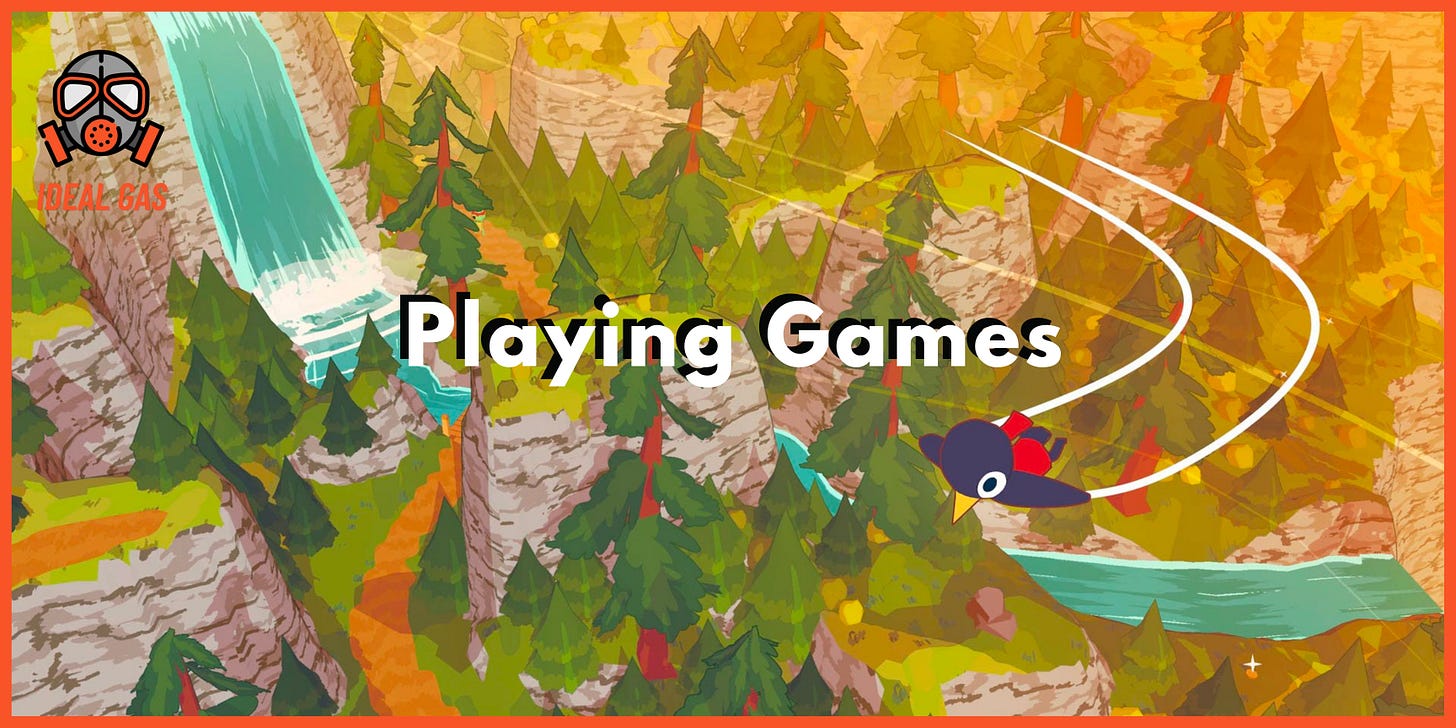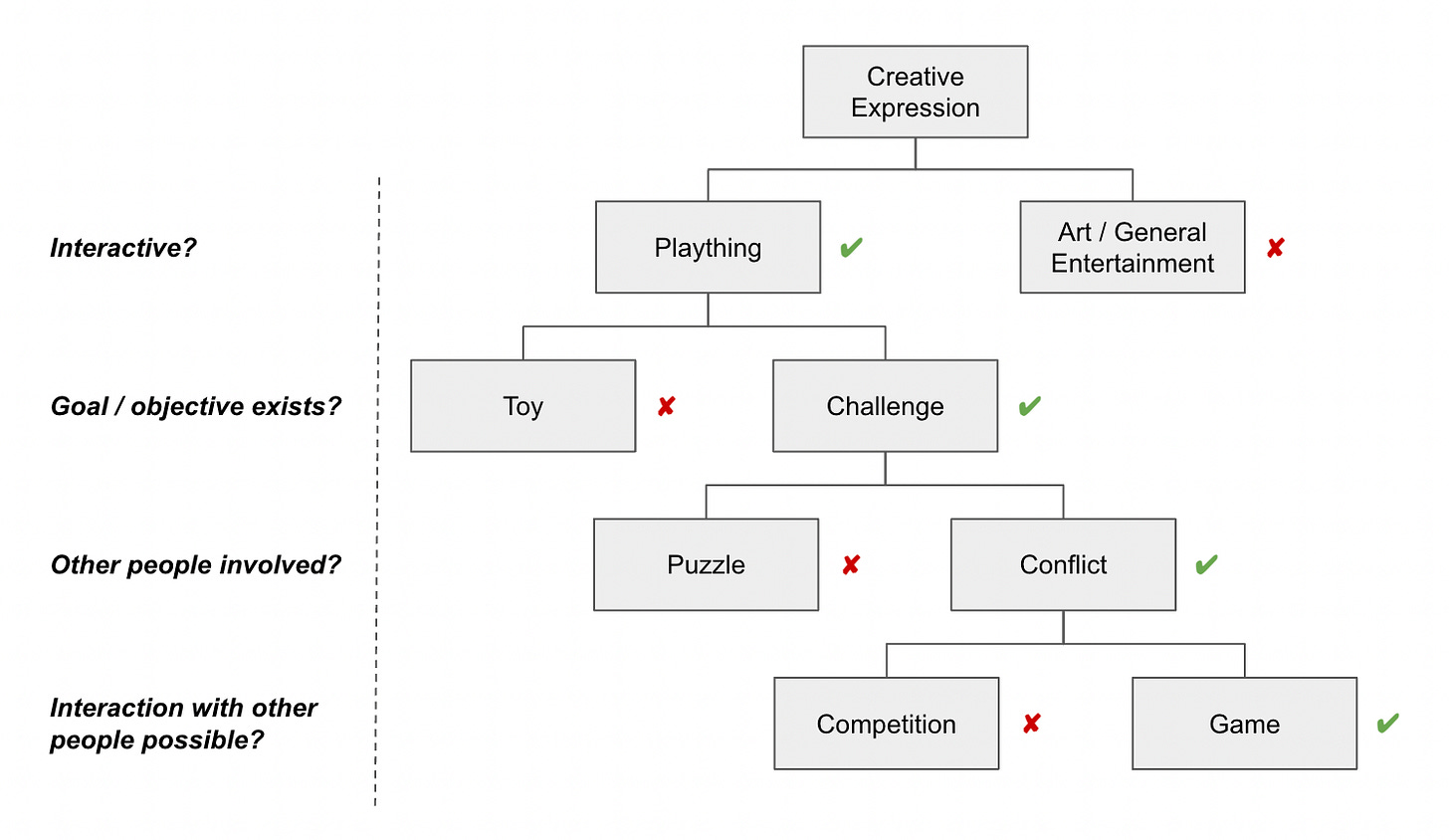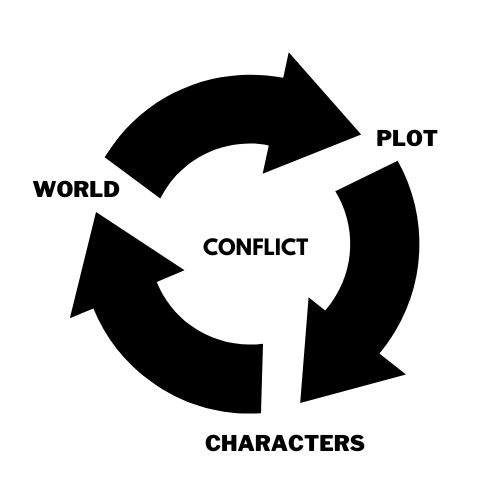This season of Ideal Gas, we are doing something different. We’re going to talk about video games. I played this game called ‘A Short Hike’ and fell in love with how it created a seemingly large world with so little. One thing led to another, so here we are. One of the side effects of writing for Ideal Gas has been a new found appreciation for good writing and storytelling. You might have already noticed it with some of our posts: Story Time, Notes on Worldbuilding, The OG Guide to Storytelling etc. Some days we cannot hold the urge to write about good writing and today is one of those days. Let’s jump right in!
“All the world’s a stage, And all the men and women merely players”
- ‘As you like it’ by William Shakespeare
Why do we play games?
One of the best definitions for games comes from computer game designer Chris Crawford. Creative expression in the form of books or movies, is fun to consume but not interactive. As soon as something is fun and interactive, it becomes a plaything. If there is a specific goal or objective associated with the plaything, it becomes a challenge. Otherwise it is simply a toy. If other people / players are not involved in the challenge, it is a puzzle. Otherwise it is a conflict. If interaction with other participants is not allowed, the conflict is a competition. If interaction with other players is allowed, we finally have ourselves a game.
Life itself fits Crawford’s definition of a game. However, life does not always provide instant feedback. It is possible that the consequences of our decisions are not clear for years. Games on the other hand are all about real-time feedback and decision making. A game models the complexity of the real world through complex rules and provides instant feedback for decisions through various forms of in-game progress.
In life, I don’t always know the right choice, I don’t know the right job to apply for . . . or when to call my mom but in Bomberman, I know what every power up does, every time, all the time
Self-actualisation
Games fulfil our self-actualisation needs in a predictable way. They are a way to experience the rewards we need without having to deal with all the unknowns involved in pursuit of that need. Now that’s actually saying a lot because self-actualisation is pretty much the highest level of the Maslow’s hierarchy of needs. Self-actualisation refers to the desire of an individual to reach their potential and accomplish everything they possibly can. Maslow even defines the characteristics of self-actualised people. These qualities are surprisingly aligned with what good games bring out in its players. Games are a way for humans to pursue needs more sophisticated than any other form of life. Because nothing else explains why this twitch stream chat is so hilarious:
The world of games
Games model the complexity of the real world in service of its players pursuing sophisticated needs. But how exactly? It would be incorrect to conclude that games are the only available medium to do this. Looking back at Crawford’s definition, even non-interactive forms of creative expression like books or movies accomplish this using a narrative structure: A story that is set in a world where the characters have to navigate the beginning, middle and end of a plot. Books and movies are great at establishing rooting interest for the characters, which lets the audience bask in reflected glory (or BIRG. Yes it’s a thing, it’s the feeling you get when your favourite team wins the game) during the plot’s payoff / final act.
This is not to undermine the value of the medium. In fact, stories are so important that we’ve developed guidelines like Aristotle’s poetics that almost make designing good characters and plots an objective exercise. The same cannot be said so confidently about the setting or how it interacts with the characters and the plot. This is the form of control that games offer. They let the player take agency of this interaction and let them experience the consequences first hand without having to BIRG. This opens up a whole new world of possible experiences which when designed meticulously can self-actualise the player. We are super excited to explore these possibilities in this new series, so make sure you subscribe to catch everything right at your inbox!



